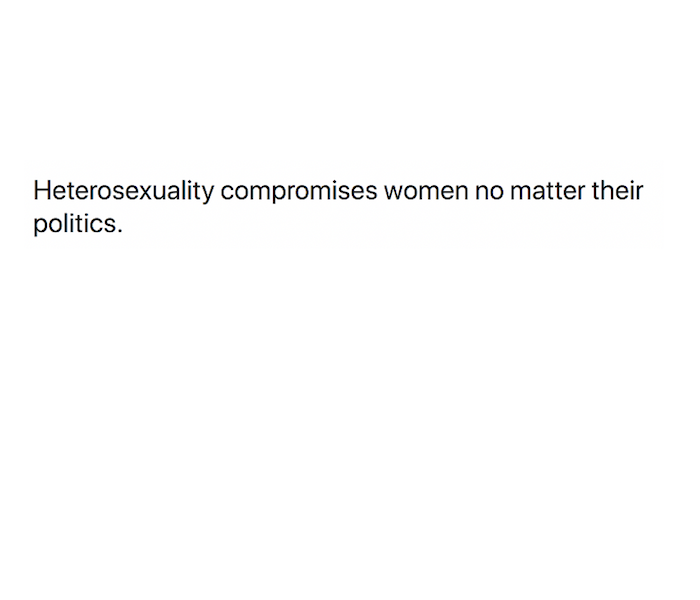Radical feminism has shaped my worldview, my politics, my relationships, and my work over the past two decades. When I was in my 20s, its approach to things like pornography and prostitution…


Radical feminism has shaped my worldview, my politics, my relationships, and my work over the past two decades. When I was in my 20s, its approach to things like pornography and prostitution…

On April 12, the Chinese government removed radical feminist groups from a popular social networking website named Douban. Similar to Reddit — which banned feminist groups critical of gender ideology last year…

Jen Izaakson and Tae Kyung Kim report on the growing radical feminist movement inspiring women across South Korea.

“Last Days at Hot Slit” provides a comprehensive view of some of Andrea Dworkin’s most powerful works, imagining a truly radical feminist vision of a world without dominance and subordination.

Raquel Rosario Sanchez interviews two members of Feministas Radicales Independientes de Argentina (FRIA), Maira and Ana. At a meeting organized by Ni Una Menos in February, Ana was physically attacked by a male trans activist.

South Korea’s radical feminists are using a multitude of bold tactics to challenge ongoing misogyny and porn culture in the country.

On the 80th anniversary of Kristallnacht, we must remember women victims of the Holocaust, and defend the legacies and collective memory of our sisters who came before us.

Meghan Murphy interviews Renee Gerlich about her ongoing activism in New Zealand and the struggles she’s faced in doing this work.

Young women in South Korea calling themselves “beauty resisters” are fighting back against the powerful and incredibly profitable beauty and cosmetic surgery industries.

When feminists are attacked, liberals and the left either support these attacks or remain silent. Indeed, we are treated as though the attacks are all our fault.

Meghan Murphy interviews Angela C. Wild about the recent Lesbian protest at Pride in London and the state of the LGBT movement today.

Under patriarchy, women have been groomed into a perpetual state of tolerance; today, “tolerance” has been taken up by certain feminists, making it impossible to define a set of collective values or assert shared goals.

While words like “equality,” “diversity,” “inclusion,” and “intersectionality” might sound nice, they don’t address the root problem of patriarchy and they erase feminism’s real aims. On International Women’s Day, let’s remember what feminism is really about.